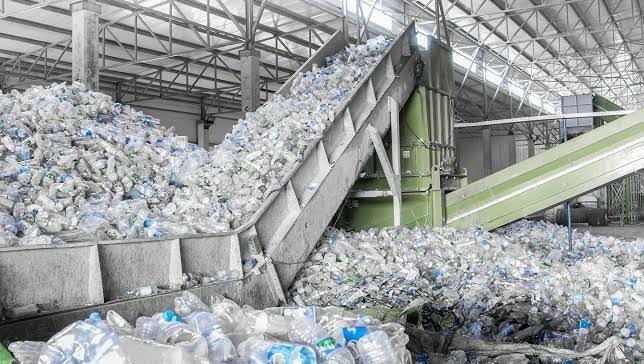The German Agency for International Cooperation (GIZ) and stakeholders in the recycling sector on Tuesday called for collaboration of both formal and informal actors to access adequate funding.
The stakeholders made the call during a one-day workshop on Access to Finance for Value Chain Actors, in Lagos.
Dr Afolabi Olawale, Advisor, Local Economic Development and Access to Finance, GIZ-SEDIN, said the workshop was to help MSMEs improve on their income and also to create jobs.
SEDIN supports implementation partners in improving the employment and income situation of MSMEs.
The programme cooperates with partners at the federal, state and local levels.
Olawale said that GIZ-SEDIN understands the challenges of MSMEs, which is usually funding, and the workshop was channelled towards exposing them to available funding.
“We saw the break in transmission and we thought that we should come in because making the market work is very important and supporting the system to understand better, the dynamics and proffer solutions.
“We also help the supply side understand the business. We try to make them come up with tailored products and not just force the general salary account concept on the market.
“They need to understand the recycling business, the input and output demand, to know how payment will be structured. So, we are using this medium to bring all stakeholders together.
“Yes, the money is there, but those that would give it do not know you. They need to know your capacity, and that’s what this workshop is all about,” he said.
Mrs Agharese Onaghise, the Secretary, Food and Beverage Recycling Alliance (FBRA), also said there was the need to merge the formal and informal sectors of recycling to ensure effectiveness.
Onaghise disclosed this while speaking on Economic Prospects of Waste Pickers in Lagos State and the need for formalisation.
The FBRA Secretary said what some people see as challenges may be seen as source of opportunity by others, and that both sectors need each other to function well.
“Waste is Material In Transit (MIT) and every actor is needed in recycling and mining this waste into finished or valuable items.
“There is value added, which is the mining of the waste, before you can get money from it. So ask yourself which stage of the process you belong and if you are prepared for the opportunity.
“There are challenges which are usually funding, health and safety issues and more.”
Onaghise urged recyclers to ensure the safety of their waste pickers, as they are also important actors in recycling.
She said that collaboration and partnership were important and both formal and informal sectors should not see themselves as competitors but collaborators.
Mr Dayo Bello, a Consultant for Waste Pickers Association, said the association was promoting collaboration and also registration of members before coming out fully as part of the system.
Bello said the association frowns at cart pushers using the opportunity to commit crime, which was why they were scrapped.
He said that not just anyone could walk into the dumpsite to pick waste and urged the state government to support those that had put it upon themselves to do the task.
“Formalisation will help open doors for dialogue with policy makers and support from corporate organisations, local and international.
“It will also help price control in relation to the present economy.” he said.
Mrs Sheila Ojei, Director, Strategy Funding and Stakeholder Management, Lagos State Employment Trust Fund (LSETF), said there were challenges for some recyclers due to lack of understanding and new technology.
Ojei said this while speaking on Access to Finance, Readiness and Opportunities for Plastic Value Chain Actors.
She urged plastic value chain actors to research and have a business plan, as it would help determine the type of funding needed.
Ojei said plastic value chain actors could either take a loan or equity and that LSETF had various funding products that could be easily accessed.
“The goal is to create more jobs in Lagos by helping enterprise grow.” she said.
Mr Ismaeel Lawal, National Senior MSME Development Expert, GIZ-GOPA, said everyone had a role to play in gaining access to funds.
Lawal said people should not just expect the government to do everything but be willing to pay the price, which is adequate research on the Business Model Canvas.
The expert also said there was the need to collaborate and not compete, as healthy competition would motivate an entrepreneur, especially from existing business owners.
“Access to finance does not just come, it has to meet your readiness and preparedness,” he said.

















Discussion about this post